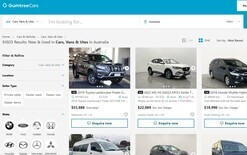Cutting pollution on agenda

The chief executive officer of Toyota New Zealand has been elected to the steering committee of the Climate Leaders Coalition (CLC) and has confirmed the marque’s commitment to the group’s new statement of ambition.
As one of the 12 founding members of the CLC, Neeraj Lala says the company is committed to greenhouse gas (GHG) emissions reduction targets and public reporting on its progress in meeting those.
Formed in 2018, the CLC has a mission of having New Zealand business chief executive officers leading the response to climate change through collective, transparent and meaningful action on mitigation and adaptation. Its work is overseen by the steering committee.
“As a founding member, we take our election to the steering committee seriously,” adds Lala. “I’m honoured to build on the legacy of predecessors and bring some further energy into ensuring this work continues.
“This is important to Toyota as we continue down the pathway we’ve been on for many years towards net-zero emissions. Our journey to a low-carbon future continues to gather momentum as we ensure that we’re part of important cross-industry groups, such as the CLC.”
Lala, pictured, believes the automotive industry needs to take a stronger leadership role in the transition to a net-zero carbon future.
“At Toyota, we are fully committed to reducing emissions from our operations and vehicle portfolio. We’re equally committed to ensuring the transition to low or zero-carbon transport options is affordable, accessible and sustainable.”
Toyota NZ’s average carbon dioxide (CO2) emissions from its new-vehicle fleet have fallen from more than 185gCO2/km to just over 160gCO2/km in five years.
Lala says this has been achieved by a combination of increasing electrified options for customers and producing greater efficiency in vehicles with internal combustion engines. For Toyota models, he forecasts a further reduction in emissions to below 160gCO2/km by the end of the 2022 financial year.
Toyota NZ has previously stated its intent to ensure product stewardship, including taking a circular-economy approach, is part of its climate-change strategies moving forward.
“Our corporate goals are focused on being carbon neutral by 2050 and our product stewardship in New Zealand across all areas of our business and supply chain,” says Lala. “We need to innovate and look at out-of-the box solutions to achieve a holistic, circular-economy approach to our supply chain.”
Toyota NZ will be working with other CLC members to plan for an equitable transition that avoids leaving Kiwis behind, while “proactively” supporting other stakeholders, including suppliers and associated businesses, to act on climate change and reduce their GHG emissions.
The CLC’s statement of ambition has been updated to reflect advances in international and domestic climate policy and science. It replaces a previous statement approved by its members in 2019.





